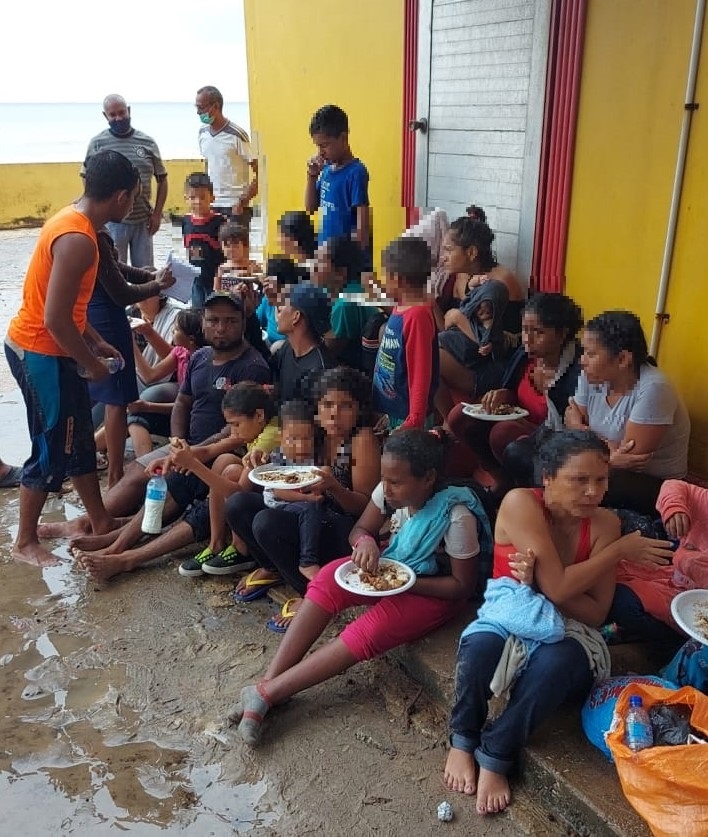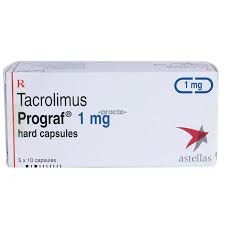By Prior Beharry
A HIGH Court judge has thrown out an application to stop the deportation of an 11-year-old Venezuelan girl who twice entered Trinidad and Tobago illegally.

In his 32-page ruling on Tuesday, Justice Frank Seepersad chided the mother for “subjecting her child to the terrors of the sea and the flagrant flouting of local laws cannot be condoned or disregarded.”

He added, “In this regard it appears to this Court that based on the affidavit evidence before it that possible criminal offences may have been committed and the Registrar of the Supreme Court is hereby directed to forthwith forward the affidavits filed herein to the Commissioner of Police and to the Director of Public Prosecutions.”
The girl was part of a group of 27 Venezuelans who entered T&T waters illegally after being previously escorted out of the jurisdiction.
The judgement revealed that she was born on Christmas Eve 2008 and her mother Gregoria Del Carmen Figuerdo, who filed the application on her behalf, was registered with the United Nations High Commissioner for Refugees (UNHCR).

Justice Seepersad said the child was deported on November 22 but re-entered T&T on November 24 and was in state quarantine at Chaguaramas.
The court considered T&T’s international convention obligations concerning refugees and the impact of the draft 2014 policy.
Justice Seepersad said, “Trinidad and Tobago on November 2, 2000 became the 140th country to sign the 1951 Convention Relating to the Status of Refugees and its 1967 Protocol – the foundations of international refugee law.

“By acceding to the two international instruments that govern the treatment of asylum seekers and refugees, this country acknowledged the vulnerability of refugees and the rule that the international community plays in the protection of the rights of refugees.”
He noted that steps were needed to incorporate international treaties such as the 1951 Convention into national law.
Justice Seepersad said, “In this jurisdiction the 1951 Convention has not been incorporated into domestic law.
“In the absence of national legislation for the protection of refugees or the granting of asylum under the international refugee instruments, asylum-seekers and refugees primarily remain subject to the provisions of the Immigration Act Chap. 18:01.”

He added that T&T developed a refugee policy in 2014 called The National Policy to address Refugee and Asylum-Seekers in Republic of Trinidad and Tobago 2014.
Justice Seepersad said, “It was adopted by Cabinet in June 2014. This policy dealt with the refugee status determination procedure and proposed a three-phased strategy to refugee status determination which would allow for the transfer of knowledge and expertise on refugee status determination to T&T through training provided by the UNHCR.
He said over the years the Living Waters Community (LWC) had emerged as the implementing partner of the UNHCR.
Justice Seepersad said, “The LWC undertakes the reception of the asylum claims and facilitates registration with the UNHCR.

“Asylum seekers must first register with the LWC before a refugee status determination interview is conducted by the UNHCR which makes the final determination on refugee status.”
The judge said the Venezuelans needed a Visa to enter T&T which borders were closed due to the Cobvid-19 pandemic.
Justice Seepersad said people who entered the jurisdiction not in accordance with the Immigration Act would be subject to deportation.
Quoting Section 11 of the Act he said, “…at the commencement of this Act a prohibited immigrant within the meaning of the former Ordinance and the Minister may make a deportation order against such person and such person shall have no right of appeal therefrom and shall be deported as soon as possible.”

Justice Seepersad said, “It is a fact that due to the Covid-19 pandemic, regulations have been made and executive decisions have been taken and our borders are currently closed to both nationals abroad and non-nationals.
“Persons wishing to enter this jurisdiction have to apply for exemptions and the Court takes judicial notice of the fact that thousands of nationals and residents currently have exemption applications pending before the Ministry of National Security.
“Consequently any entry by migrants through illegal points of entry and without the requisite exemption certificate infringes the law.
The judge slammed the child’s mother. He said, “This Court has noted that on the undisputed affidavit evidence the minor’s mother arranged for her child, without regard to the domestic laws for her child to enter the jurisdiction illegally.”

Justice Seepersad was also critical of the state, adding, “The Court also notes that it is the obligation of the government to secure the borders and this obligation has evidently not been discharged with either alacrity or success.”
The judge said the mother should be given the opportunity to go into state quarantine with the minor as her “request for daily visits poses administrative, economic and health challenges and cannot be entertained.”
He added, “In the event that the mother does not go into quarantine with the minor then suitable arrangements must be made even if it involves the provision of a cellular phone for the minor to have continued communication with the mother.”
The judge also asked that the minor be housed in suitable facilities under the Children Act.
In dismissing the application of the mother, Justice Seepersad ordered that she pay the State’s legal costs of the notice of the application certified fit for senior counsel, the quantum of which will be assessed by the court in default of agreement.
Gerald Ramdeen, Umesh Maharaj instructed by Dayadai Harripaul and Nerisa Bala, represented the Figuerdo while Fyard Hosein SC instructed by Sanjiv Sookoo and Hillary Muddeen appeared for the State.
Ver la historia en Español abajo
Juez Seepersad Dictamina Que Una Menor Venezolana Puede Ser Deportada
Por Prior Beharry
Un juez de la Corte Suprema desestimó una solicitud para detener la deportación de una niña venezolana de 11 años que ingresó dos veces a Trinidad y Tobago ilegalmente.
En su fallo de 32 páginas el martes, el juez Frank Seepersad reprendió a la madre por “someter a su hija a los terrores del mar y el incumplimiento flagrante de las leyes locales no puede ser tolerado ni ignorado.”

Agregó: “Al respecto, le parece a este Tribunal que con base en la prueba jurada que tiene ante sí de que se pueden haber cometido posibles delitos penales y se ordena al Secretario de la Corte Suprema que transmita de inmediato las declaraciones juradas aquí presentadas al Comisionado de Policía y al Director del Ministerio Público.

La niña era parte de un grupo de 27 venezolanos que ingresaron ilegalmente a aguas de T&T luego de haber sido previamente escoltados fuera de la jurisdicción.
La sentencia reveló que nació en la víspera de Navidad de 2008 y su madre, Gregoria Del Carmen Figuerdo, quien presentó la solicitud en su nombre, estaba registrada ante el Alto Comisionado de las Naciones Unidas para los Refugiados (ACNUR).
El juez Seepersad dijo que la niña fue deportada el 22 de noviembre, pero volvió a ingresar a T&T el 24 de noviembre y estaba en cuarentena estatal en Chaguaramas.

El tribunal consideró las obligaciones de la convención internacional de T&T con respecto a los refugiados y el impacto del proyecto de política de 2014. El juez Seepersad dijo, “Que el 2 de noviembre de 2000 Trinidad y Tobago se convirtió en el país número 140 en firmar la Convención sobre el Estatuto de los Refugiados de 1951 y su Protocolo de 1967, los fundamentos del derecho internacional de los refugiados.
“Al adherirse a los dos instrumentos internacionales que rigen el trato de los solicitantes de asilo y refugiados, este país reconoció la vulnerabilidad de los refugiados y la regla que juega la comunidad internacional en la protección de los derechos de los refugiados.”
Señaló que se necesitaban medidas para incorporar tratados internacionales como la Convención de 1951 en la legislación nacional.
El juez Seepersad dijo: “En esta jurisdicción, la Convención de 1951 no se ha incorporado al derecho interno.
“En ausencia de una legislación nacional para la protección de los refugiados o la concesión de asilo en virtud de los instrumentos internacionales sobre refugiados, los solicitantes de asilo y los refugiados siguen estando sujetos principalmente a lasdisposiciones de la Ley de Inmigración, cap. 18:01.”

Agregó que T&T desarrolló una política de refugiados en 2014 llamada Política Nacional para atender a los refugiados y solicitantes de asilo en la República de Trinidad y Tobago 2014.
El juez Seepersad dijo: “Fue adoptada por el Gabinete en Junio de 2014. Está política trata del procedimiento de determinación de la condición de refugiado y propone una estrategia de tres faces para la determinación de la condición de refugiado que permitiría la transferencia de conocimientos y experiencia sobre la determinación de la condición de refugiado en T&T a través de la formación proporcionada por ACNUR.
Dijo que a lo largo de los años, Living Waters Community (LWC) se había convertido en el socio ejecutor del ACNUR.
El juez Seepersad dijo: “LWC se encarga de recepción de las solicitudes de asilo y facilita el registro con el ACNUR.”
“Los solicitantes de asilo deben registrarse primero en LWC antes de que el ACNUR lleve a cabo una entrevista de determinación de la condición de refugiado, que toma la determinación final sobre la condición de refugiado.”
El juez dijo que los venezolanos necesitaban una visa para ingresar a T&T, cuyas fronteras estaban cerradas debido a la pandemia Cobvid-19.

El juez Seepersad dijo que las personas que ingresen a la jurisdicción que no estén de acuerdo con la Ley de inmigración estarán sujetas a deportación. Citando la Sección 11 de la Ley, dijo: “… al comienzo de esta Ley, un inmigrante prohibido en el sentido de la Ordenanza anterior y el Ministro puede dictar una orden de deportación contra dicha persona y dicha persona no tendrá derecho a apelar contra la misma y deberá ser deportado lo antes possible.”
El juez Seepersad dijo: “Es un hecho que debido a la pandemia de Covid-19, se han hecho regulaciones y se han tomado decisiones ejecutivas y nuestras fronteras están actualmente cerradas tanto para nacionales en el extranjero como para no nacionales.
“Las personas que deseen ingresar a esta jurisdicción deben solicitar exenciones y la Corte toma nota judicial de que miles de nacionales y residentes tienen actualmente solicitudes de exención pendientes ante el Ministerio de Seguridad Nacional.
“En consecuencia, cualquier entrada de migrantes a través de puntos de entrada ilegales y sin el certificado de exención requerido infringe la ley. El juez arremetió contra la madre de la menor.”
Dijo: “Este Tribunal ha señalado que en la evidencia de la declaración jurada indiscutida la madre de la menor hizo arreglos para que su hija, sin tener en cuenta las leyes nacionales, ingresara a la jurisdicción ilegalmente.”
El juez Seepersad también fue crítico con el estado, y agregó: “La Corte también observa que es obligación del gobierno asegurar las fronteras y esta obligación evidentemente no se ha cumplido ni con prontitud ni con éxito.”
El juez dijo que la madre debería tener la oportunidad de entrar en cuarentena estatal con la menor ya que su “solicitud de visitas diarias plantea desafíos administrativos, económicos y de salud y no puede ser entretenida.”
Añadió: “En el caso de que la madre no entre en cuarentena con la menor, se deben hacer los arreglos adecuados, incluso si se trata de la provisión de un teléfono celular para que la menor tenga comunicación continua con la madre.”
El juez también pidió que el menor sea alojada en instalaciones adecuadas en virtud de la Ley de menores.
Al desestimar la solicitud de la madre, el juez Seepersad ordenó que ella pagara las costos legales del Estado de la notificación de la solicitud certificada apta para un abogado superior, cuyo costó será evaluado por el tribunal en caso de incumplimiento.
Gerald Ramdeen, Umesh Maharaj instruido por Dayadai Harripaul y Nerisa Bala, representó a los Figuerdo mientras que Fyard Hosein SC instruido por Sanjiv Sookoo y Hillary Muddeen representaron el Estado.
![]()










